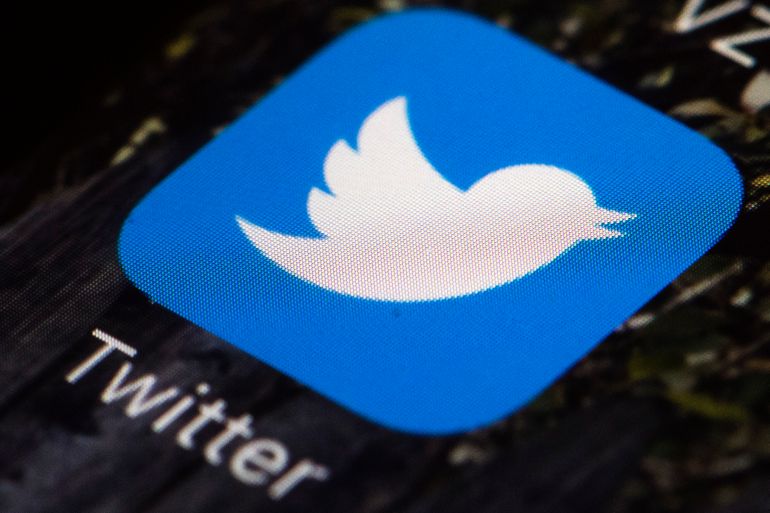India accuses Twitter of not complying with new IT rules
Standoff between government and Twitter escalates after technology minister accuses social media giant of deliberately not complying with local laws.

India’s technology minister says Twitter Inc deliberately defied and failed to comply with the country’s new IT rules, which became effective in late May.
Technology Minister Ravi Shankar Prasad on Wednesday said Twitter has chosen “the path of deliberate defiance” when it comes to following new internet regulations that digital activists have said could curtail online speech and privacy in India.
Keep reading
list of 4 itemsIndian court grants bail to activists arrested over Delhi riots
38 wives, 89 children: Mizoram man who headed religious sect dies
This Indian village refused COVID vaccines, fearing a god’s wrath
“If any foreign entity believes that they can portray itself as the flag bearer of free speech in India to excuse itself from complying with the law of the land, such attempts are misplaced,” Prasad said in a series of tweets.
“However, the simple fact of the matter is that Twitter has failed to comply with the Intermediary Guidelines that came into effect from the 26th of May.”
There are numerous queries arising as to whether Twitter is entitled to safe harbour provision. However, the simple fact of the matter is that Twitter has failed to comply with the Intermediary Guidelines that came into effect from the 26th of May.
— Ravi Shankar Prasad (@rsprasad) June 16, 2021
The new rules or the so-called Intermediary Guidelines, announced in February, are aimed at regulating content on social media firms such as Facebook, its WhatsApp messenger and Twitter, making them more accountable to legal requests for the swift removal of posts and sharing details about the originators of messages.
Under the new rules, social media websites and tech companies will also have to remove content within 36 hours after an administrative or legal order is issued. Their employees can be held criminally liable for failing to comply with the government’s requests.
The rules also require big social media companies to set up grievance redressal mechanisms and appoint new executives to coordinate with law enforcement.
‘Manipulated media’ row
Prasad also accused Twitter of bias and said it was labelling some content as manipulated media, “only when it suits its likes and dislikes”.
In May, leaders from governing Bharatiya Janata Party (BJP) tweeted parts of a document they said was created by the main opposition Congress party to discredit the government’s handling of the pandemic.
Some Congress leaders complained to Twitter, saying the document was forged. In response, Twitter marked some posts as “manipulated media”.
Twitter rules apply “manipulated media” tags to posts that have been “deceptively altered or fabricated”.
Prasad’s ministry wrote to Twitter on June 5, warning the company of “unintended consequences” if it did not obey the rules, Reuters news agency had previously reported.
Prasad did not directly say whether Twitter had lost intermediary protections, but a senior government official told Reuters that Twitter may no longer be eligible to seek liability exemptions as an intermediary or the host of user content in India due to its failure to comply with new IT rules.
Twitter did not respond to a request for comment though it said on Monday it was keeping India’s technology ministry informed of the steps it was taking.
“An interim chief compliance officer has been retained and details will be shared with the Ministry directly soon,” it said. “Twitter continues to make every effort to comply with the new guidelines.
The Indian government has been at odds with major social media websites over a new set of sweeping regulations that give it more power to police online content.
It requires companies to erase content that authorities deem unlawful, comply with government takedown orders, help with police investigations and identify the originators of “mischievous information”.
New Delhi-based digital advocacy group, the Internet Freedom Foundation, said it was only up to courts, and not the government, to decide whether companies such as Twitter remained intermediaries for alleged non-compliance such as the appointment of executives.
Growing tensions with India’s government have riled big tech firms based in the United States that have spent millions of dollars to build hubs in their largest growth market, to the extent that some are rethinking expansion plans, people close to the matter have told Reuters previously.
The friction has intensified recently, with the government threatening social media companies with legal action and their employees with prison time if they refuse to comply with the takedown directives.
Initially, Twitter expressed concern about what it called “the potential threat to freedom of expression” when the new rules came into effect late last month.